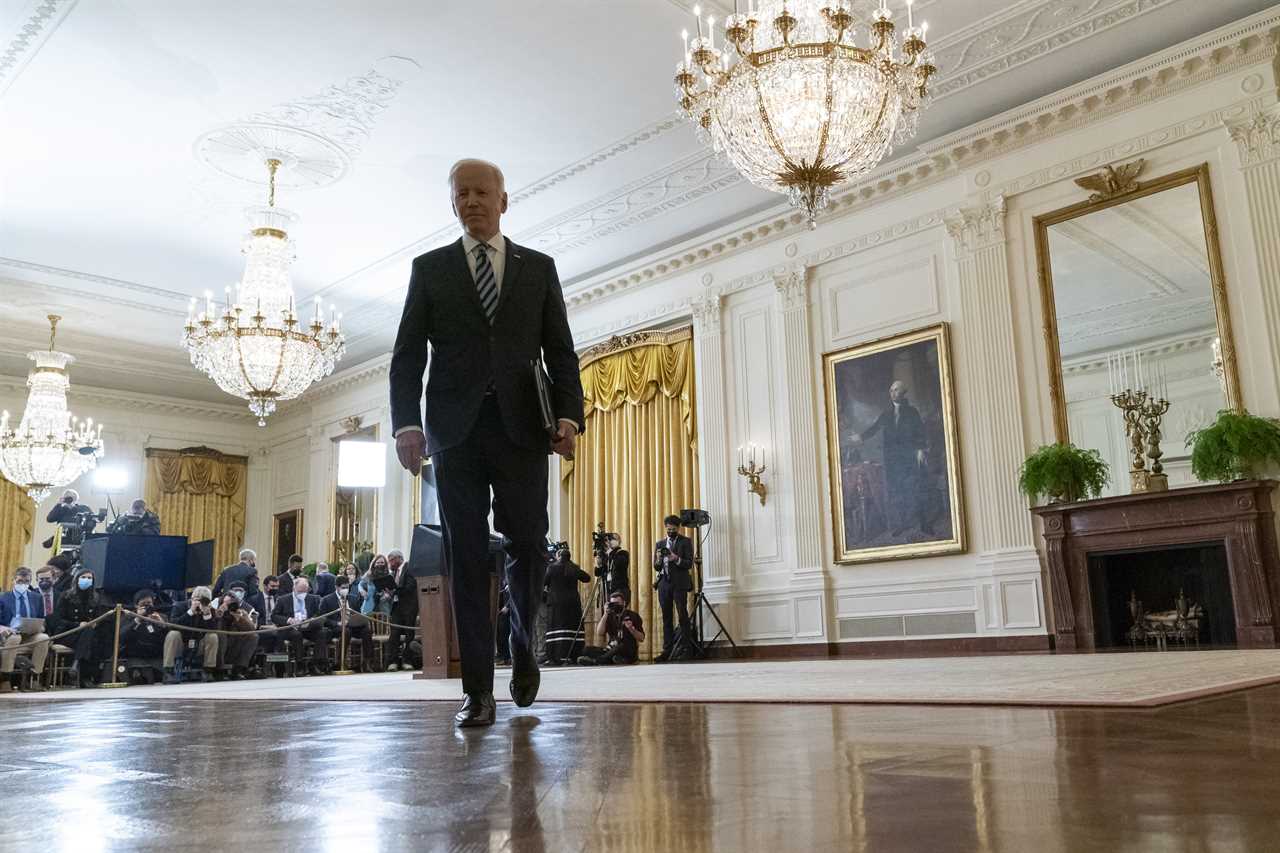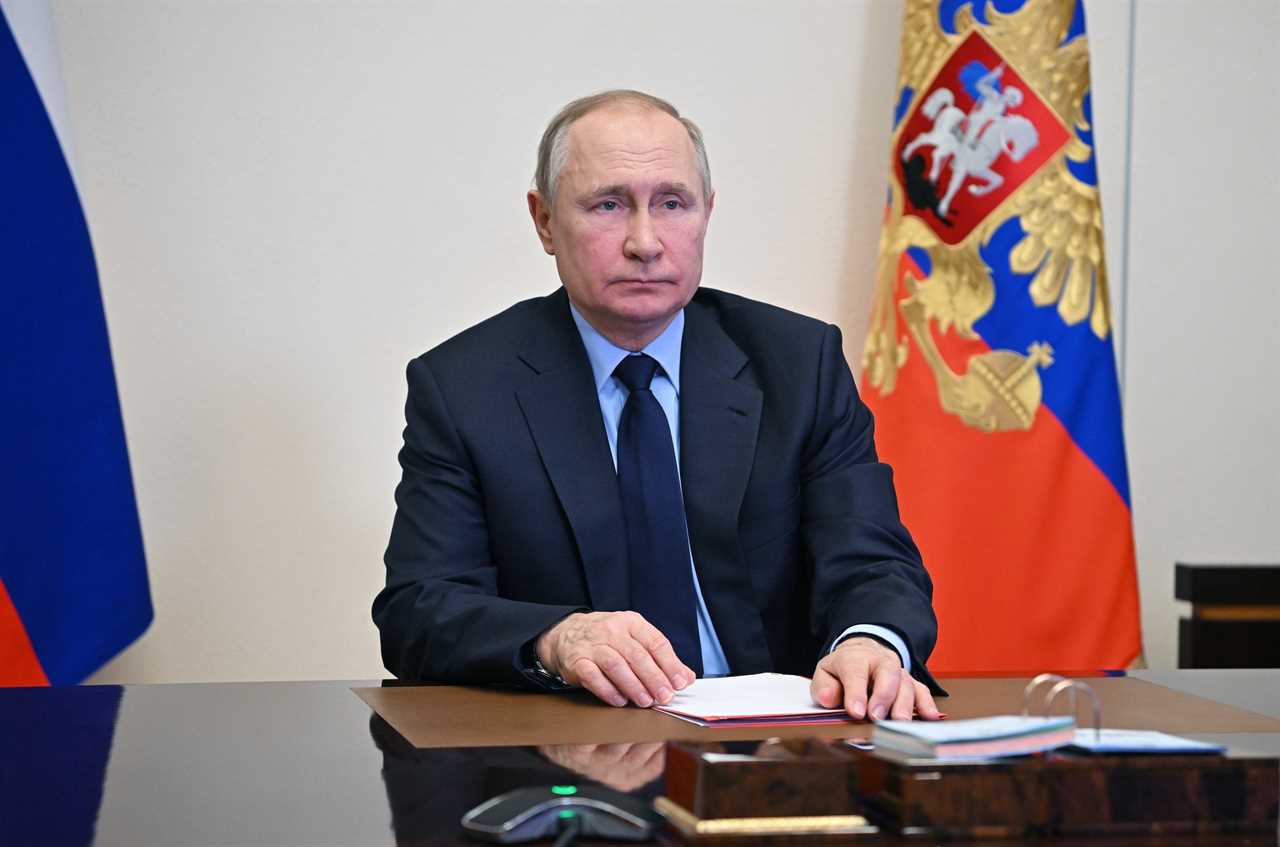
The U.S. will curtail Russia’s access to high-end technologies amid its escalating conflict with Ukraine in an unprecedented expansion of trade restrictions that President Joe Biden said Thursday would gradually degrade the country’s military and economy.
“Today, I'm authorizing additional strong sanctions and new limitations on what can be exported to Russia. This is going to impose severe costs on the Russian economy, both immediately and over time,” Biden said.
Key trading partners will join the U.S. in imposing export controls that Biden estimated would cut off more than half of Russia’s high-tech imports. That will deprive Russia’s defense, aerospace and maritime industries of equipment and software that are necessary to compete globally, he said.
“Some of the powerful impacts of our actions will come over time as we squeeze Russia's access to finance and technology for strategic sectors of its economy, and degrade its industrial capacity for years to come,” Biden said.

The Commerce Department said it would impose sweeping export controls on certain products that are produced abroad and bound for Russia, including semiconductors, computers, telecommunications equipment, aircraft components and marine equipment.
The department also added 49 Russian companies and organizations to its Entity List, a trade black list that limits the ability of those firms to do business with American companies without obtaining prior authorization from the government.
“With these export controls, we, together with our allies and partners, are technologically isolating Russia and degrading its military capabilities,” assistant secretary of commerce for industry and security, Thea Rozman Kendler, said in a statement. “Russia’s violation of Ukraine’s territorial integrity and sovereignty warrants this swift and expansive export controls response.”
Russia is not a major U.S. trading partner. The U.S. exported $6.4 billion worth of goods to Russia last year, per Commerce Department data, and products like machinery, automobiles and airplanes have been among the biggest sellers.
But invoking the Foreign Direct Product Rule allows Biden to impose export controls on goods manufactured outside the United States, so long as those products contain American-made components or are produced using American technology.
That extends the reach of U.S. law and magnifies the potential blow to the Russian economy, said Kevin Wolf, an attorney at law firm Akin Gump and former assistant secretary of Commerce for export administration.
“It will subject large portions of the world’s products and equipment and semiconductors to U.S. export controls, so it could be really quite significant and impactful,” Wolf said. “If you can't get the semiconductors you need to make things in Russia, or the aircraft parts or the ship parts to make things, then you have a downward spiral economically.”
The U.S. asserts that critical trading partners in Europe and Asia will also impose trade restrictions on key technologies, cutting off potential alternatives for Russia to buy critical technologies elsewhere. Biden said Thursday that the U.S. is in lockstep with the European Union, as well as the U.K., Canada, Japan, Australia and New Zealand, among others.
On Thursday, U.K. Prime Minister Boris Johnson said he will prohibit all dual-use export licenses to Russia, effectively blocking manufacturers from exporting parts that could be used for military or civilian purposes, such as truck parts or computers.
Meanwhile, three diplomats told POLITICO that the European Union is also weighing technology-focused sanctions that would cover dual use technologies, among other measures to punish Russia for the Ukraine invasion.
But Doug Jacobson, a longtime international trade attorney at law firm Jacobson Burton Kelley, doubts the export controls will significantly hamper Russia’s economy or military. Unlike the Cold War era, the U.S. no longer has a monopoly on high-end technology and the ability to unilaterally cut Russia off from the world market, he said.
“Sanctions, obviously, have their own problems in terms of deterrence. As we've seen the last week, that has not been a deterrent,” Jacobson said. “But export controls are even a lower deterrent because the US is not the only source” of critical technologies.
Indeed, Russia could turn to Beijing to purchase some critical technology, such as semiconductors, though Chinese manufacturers cannot currently produce the same high-tech chips found in Taiwan or South Korea.
“It would just simply be a flesh wound,” Jacobson explained. “It would have some short-term impact, but they're going to procure these things through other means.”
Jacopo Barigazzi contributed to this report.
----------------------------------------
By: Steven Overly
Title: How Biden plans to squeeze Putin's global access to high tech
Sourced From: www.politico.com/news/2022/02/24/biden-squeeze-russia-putin-technology-00011501
Published Date: Thu, 24 Feb 2022 15:53:55 EST
Did you miss our previous article...
https://consumernewsnetwork.com/politics-us/-the-isolationists-are-wrong-the-pax-americana-is-worth-defending






